Best of #econtwitter - Week of August 9, 2020
Aug 09, 2020
Welcome readers old and new to this week’s edition of the Best of Econtwitter. Recommendations always welcome over email or on Twitter @just_economics.
New papers

Rebekah Smith@RebekahL_Smith
tl;dr @pabarcar finds for every one migrant nurse from the Philippines, there were an additional TEN LICENSED NURSES IN THE PHILIPPINES due to increased nursing graduations
(can we please put brain drain to rest now??)

Paolo Abarcar @pabarcar
🔥 Our revised paper on nurse migration is finally out! 🔥 We study whether the U.S's aggressive recruitment of nurses from the Philippines in the 2000s led to a "brain drain."
https://t.co/q6KCKPH3bt https://t.co/DUhzHLLam7
2:43 PM · Aug 3, 2020
10 Reposts · 23 Likes

Edward Miguel@tedmiguel
Starting in 1998, Michael Kremer and I evaluated a large-scale public health program that provided an additional 2-3 years of medical treatment for intestinal worm infections to tens of thousands of Kenyan primary school children. [1/5 thread]
5:21 AM · Aug 3, 2020
407 Reposts · 1.16K Likes

Colin Camerer@CFCamerer
NEW @NatureHumBehav study of direct classroom replication of centralized buyer-seller trade ("invisible hand") and ultimatum games nature.com/articles/s4156…
@Caltech release here
caltech.edu
Famous Economics Experiment Reproduced Thousands of Times

2:18 AM · Aug 4, 2020
47 Reposts · 108 Likes

Tim Bartik@TimBartik
My article on place-based jobs policies was published today in the Journal of Economic Perspectives. This article summarizes evidence for the "market failure" argument for such policies -- but w/ caveats about how current policies need reforms: aeaweb.org/articles?id=10… (1/N)
aeaweb.org
Using Place-Based Jobs Policies to Help Distressed Communities

2:17 PM · Aug 4, 2020
55 Reposts · 108 Likes

Tommaso Porzio@PorzioTommaso
Everywhere in the world, urban workers earn higher income, have larger consumption and more human capital (see 👇).
David's survey is a must read for everyone interested in macro-development, and especially for grad students looking for research ideas: lots of open questions!


David Lagakos @LagakosDavid
My perspective on rural-urban gaps and migration in developing countries. Lots of room for more research in this area!
https://t.co/veOPQn1yPw https://t.co/ZQAPNzugwF
3:41 PM · Aug 4, 2020
15 Reposts · 38 Likes

Jack Liebersohn@liebersohn
🔴WORKING PAPER🔴 Regional Divergence and House Prices, w/ Greg Howard. Model of US house prices & rents for the last 80 years, we explain recent housing boom + time series + x-sec of prices/rents: papers.ssrn.com/sol3/papers.cf… live tomorrow: seminar.re Quick summary here:
seminar.re
The Timetable Register for seminars Call for Papers

4:54 PM · Aug 4, 2020
14 Reposts · 30 Likes

Ralph Lütticke@RalphLuet
A short thread on my new CEPR working paper "Financial Frictions: Macro vs Micro Volatility" with Seungcheol Lee and @MortenORavn. Gated: cepr.org/active/publica…
Ungated:
dropbox.com
1:18 PM · Aug 5, 2020
24 Reposts · 77 Likes

Michael Eddy@MichaelEddy
New overview paper: "Urbanization in the Developing World: Too Early or Too Slow?"
One key finding:
- Areas with higher population density are richer 💸
- .... but are not any healthier💉
pubs.aeaweb.org/doi/pdfplus/10…
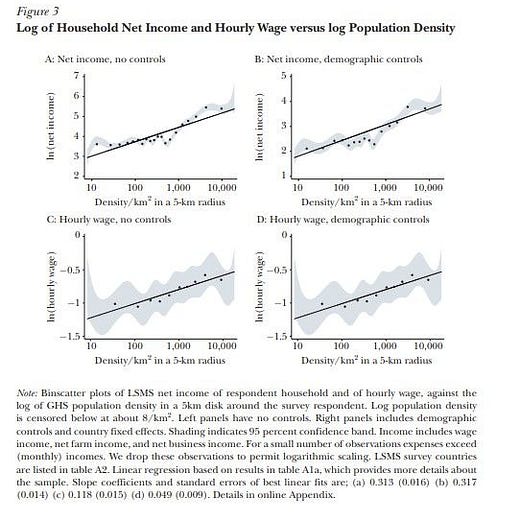
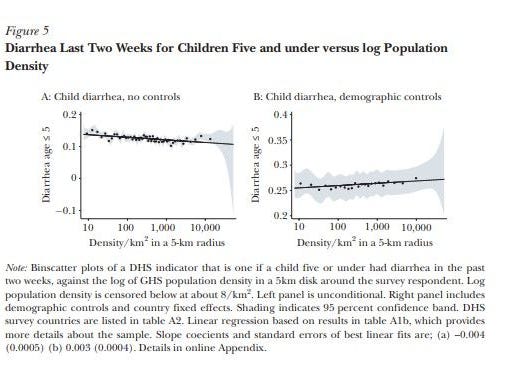
12:19 PM · Aug 5, 2020
11 Reposts · 16 Likes

Chris Uggen@chrisuggen
"US life expectancy is estimated to be 2.8 years longer among women and 2.1 years longer among men if all US states enjoyed the health advantages of states with more liberal policies" (e.g., re: tobacco, labor, immigration, civil rights, and environment). -@jennkarasmontez et al.
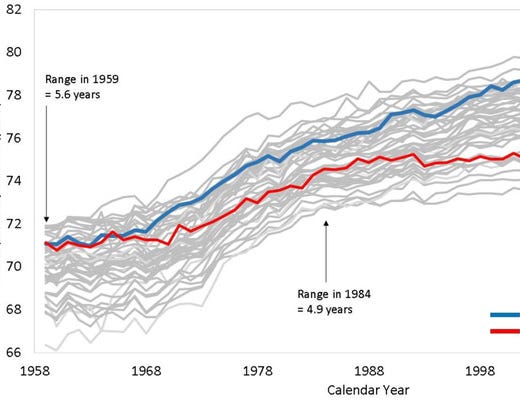
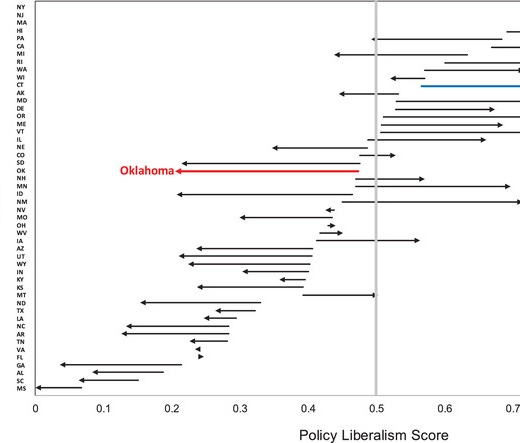

Andrew Fenelon @andyfenelon
Awesome new paper in @MilbankFund by @jennkarasmontez @mdhayward @JakeMGrumbach @AnnaZajacova @JasonBeckfield and others showing that state policies have led to life expectancy divergence in US states since 1980. We're beginning to unravel these patterns https://t.co/Owfw3jUiDs
5:18 PM · Aug 4, 2020
1 Repost · 9 Likes

Silvia Vannutelli@silviavannutell
How others' incomes affect individuals' distributional preferences? Are individuals particularly bothered by those at the very top of the distribution? or those just ahead of them? if you are interested in these questions, check out our paper @jeea #econtwitter. Summary below 1/n

Imran Rasul @ImranRasul3
Are you preparing online materials for a course in public economics/inequality? This forthcoming @JEEA_News paper on Distributional Preferences, by @ikuziemko @RFisman & @silviavannutell, posted with teaching materials.
Other advanced access papers here: https://t.co/R5I4WCud4r https://t.co/jOKjYCkhU1
2:25 PM · Aug 7, 2020
22 Reposts · 76 Likes

Federico Huneeus@FedericoHuneeus
💥🔥Working Paper Alert🔥💥
1/ Industrialization experiences differ across countries. Using a model of structural change we shed light on the sources of this heterogeneity and, in particular, the phenomenon of premature deindustrialization. A thread with some facts and findings:

NBER @nberpubs
Variation in sectoral productivity-growth patterns across countries plays an important role in industrialization dynamics, including premature deindustrialization, from @FedericoHuneeus and Richard Rogerson
https://t.co/UPm2J4JKS2 https://t.co/QWTqYbt7Fi
3:01 PM · Aug 7, 2020
54 Reposts · 204 Likes

Morten O. Ravn@MortenORavn
Next paper:
"Sentimental Business Cycles"
with Andresa Lagerborg and Evi Pappa
cepr.org/active/publica…
Question: Are there aggregate effects of autonomous variations in consumer confidence? (ie. impact of "demand shocks")
Answer: Yes
1/11
cepr.org
DP15098 Sentimental Business Cycles

1:45 PM · Aug 7, 2020
14 Reposts · 66 Likes

Lionel Page@page_eco
Does it boost your performance to be *just* behind in a competition, so that you are actually more likely to win in the end?
Very interesting new study using a lot of data on Basketball, American Football, Rugby, and Australian Football says *no*.
papers.ssrn.com/sol3/papers.cf…
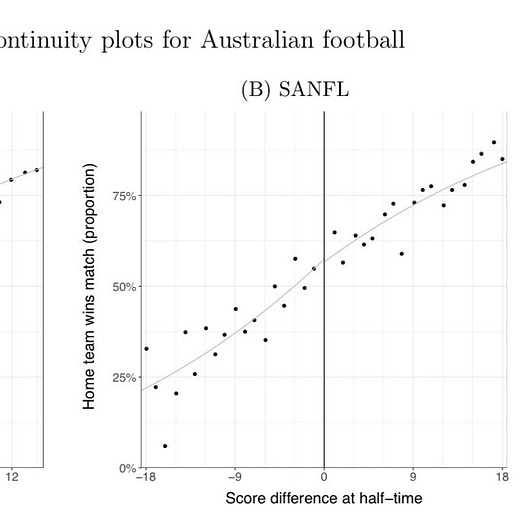
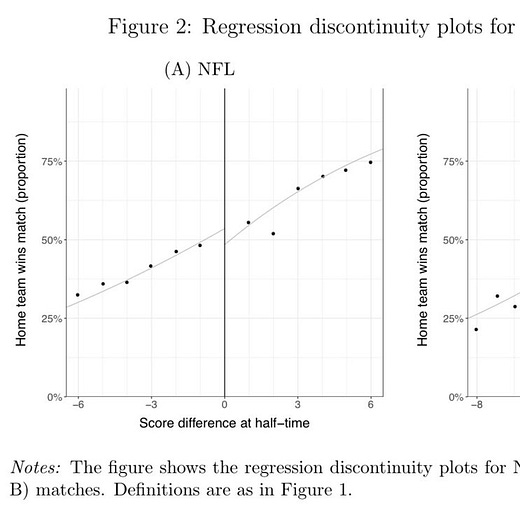
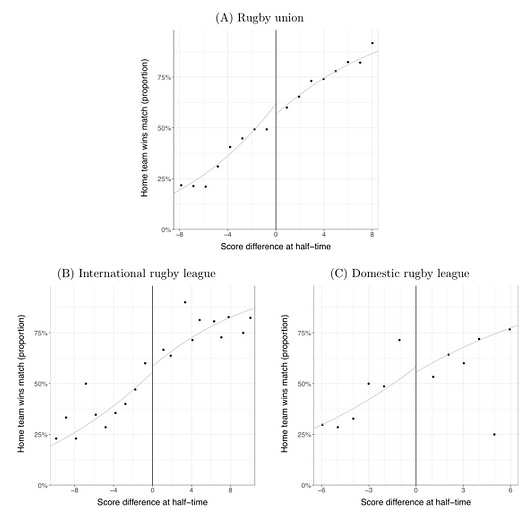
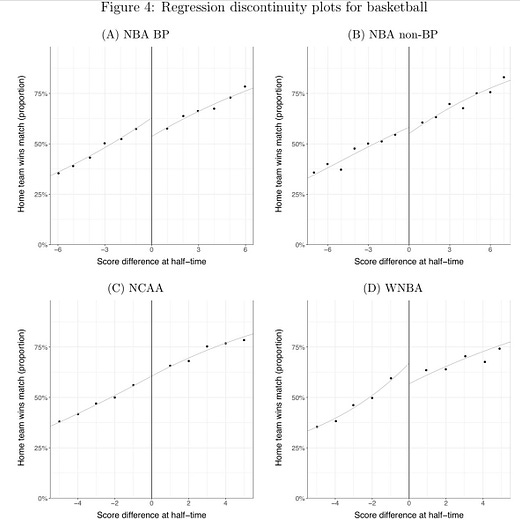
1:53 PM · Aug 8, 2020
13 Reposts · 41 Likes
Newly-published papers

Julian Reif@JulianReif
The Brodeur, Cook, and Heyes paper on p-hacking has been published by AER:
aeaweb.org/content/file?i…
They show that the amount of p-hacking / publication bias varies by research design. Figure 2 shows their main results very clearly.

3:48 PM · Aug 2, 2020
177 Reposts · 517 Likes

Flo Crivello@Altimor
“If the entire world ate like the developed world, we’d need 5 planets!”
should really be
“If the entire world cultivated like the developed world, we’d have enough for 100B people”

Max Roser @MaxCRoser
"Here we show that wheat grown on a single hectare of land in a 10-layer indoor vertical facility could produce … 220 to 600 times the current world average annual wheat yield of 3.2 t/ha.”
new article in PNAS: https://t.co/wAp9cBGJPw (@OurWorldInData is the first reference) https://t.co/dP48pEs6KK
11:49 PM · Aug 3, 2020
16 Reposts · 89 Likes

Alexander Berger@albrgr
Wow


QJE @QJEHarvard
Recently accepted by #QJE: “The Effects of Police Violence on Inner-City Students,” by Desmond Ang: https://t.co/nplwz24VKx
9:27 PM · Aug 6, 2020
3 Reposts · 12 Likes

Rachel Glennerster@rglenner
Its out @JPolEcon Bidwell, Casey & Glennerster on the impact of debates on politician behavior! Thanks to @SFCG_, @poverty_action but mainly the politicians and parties of #SierraLeone who embraced new ways of reaching voters. Early ungated v here 1/5
gsb.stanford.edu/sites/default/…

1:50 PM · Aug 9, 2020
18 Reposts · 72 Likes

Lindsey Bullinger@lindsbullinger
Research shows that gaining Medicaid under the ACA improved financial well-being. In this new work just released in @JPAM_DC, I explore whether child support (CS) is affected by Medicaid expansions. 1/4

3:45 PM · Aug 6, 2020
29 Reposts · 76 Likes

Paul Novosad@paulnovosad
Very interesting paper! 👇 Large-scale affirmative action improves public good access for targeted minorities.

Saad Gulzar @saadgulzar
🚨Just accepted at @APSRjournal 🚨
"Does Political Affirmative Action Work, and for Whom? Theory and Evidence on India’s Scheduled Areas" with @Nicholas_Haas_1 & @bjpasquale
Full paper here: https://t.co/whKktWEptu
THREAD https://t.co/TVogZ3mFzV
1:32 PM · Aug 5, 2020
6 Reposts · 27 Likes

Nicole Boyson@nikir1
My paper: "How does past experience impact hedge fund activism?" (with Linlin Ma and Bob Mooradian) was conditionally accepted at the Journal of Financial and Quantitative Analysis (@JournalFQA)😀. A thread about the paper: 1/21 papers.ssrn.com/sol3/papers.cf…
papers.ssrn.com
How Does Past Experience Impact Hedge Fund Activism? by Nicole M. Boyson, Linlin Ma, Robert M. Mooradian :: SSRN

2:17 PM · Aug 6, 2020
16 Reposts · 103 Likes
Useful threads that should be blogs

rkoijen@rkoijen
Some simple calculations to provide a perspective on the decline in the stock market and its recovery, despite the negative impact of the COVID-19 pandemic on the real economy. See here the dynamics of the S&P500 so far this year: (1/n)

8:56 PM · Aug 6, 2020
64 Reposts · 214 Likes

Owen Zidar@omzidar
(1/n) An incoming student wrote me today to ask about classes and resources for aspiring economists. I wrote the following reply, which may be useful for others so am posting parts of it here:
3:10 PM · Aug 6, 2020
162 Reposts · 577 Likes

Kathryn Anne Edwards@keds_economist
Many are asking why, even though the CARES Act set an expiration date for UI benefits four months in the future, Congress did not begin negotiating until the week it expired.
Welcome to the wonderful world of waiting for federal UI reform. Our story begins in 1976.
(thread)
1/
3:47 PM · Aug 3, 2020
47 Reposts · 123 Likes
Good discussions in the replies

Christopher A. Neilson@ChrisANeilson
Thoughtful thread with good advice on PhD applications🚨
Adding that GRE is sort of random at the top so might as well keep fishing for upside shocks 🎣 . I'd keep retaking GRE every month until time is up or you maxed out quant.

Alvin Christian @_AlvinChristian
1/N
I wrote a memo on the econ PhD application process based on my experience last year. I think prospective applicants - especially those outside of top schools - will find it useful. I only saw this from the supply side, so feel free to correct me!
https://t.co/Kt38825Rs6
1:36 PM · Aug 3, 2020
6 Reposts · 65 Likes

Paul Novosad@paulnovosad
Many people cite articles in top 5 journals to signal that their article address an important literature. I have been directly advised to do this.
This entrenches top journals and prevents rising journals from overtaking declining journals.
Can we fix this somehow?
1:55 PM · Aug 5, 2020
12 Reposts · 143 Likes

Jennifer Doleac@jenniferdoleac
I think I'm going to try working 3 days on, 1 day off, for a while, rather than trying to make it thru a full 5 days every week. Hoping this will reduce burnout. Has anyone tried something similar that has worked for them? #AcademicLife
4:22 PM · Aug 8, 2020
8 Reposts · 230 Likes

Shengwu Li@ShengwuLi
My rule is as follows: if I have completed more than N reports in the last 12 months (rolling sum), then I say no. Exceptions only for: (a) work that builds on or relates directly to my work, and (b) R&Rs of previous reports.
6:53 PM · Aug 6, 2020
12 Likes

